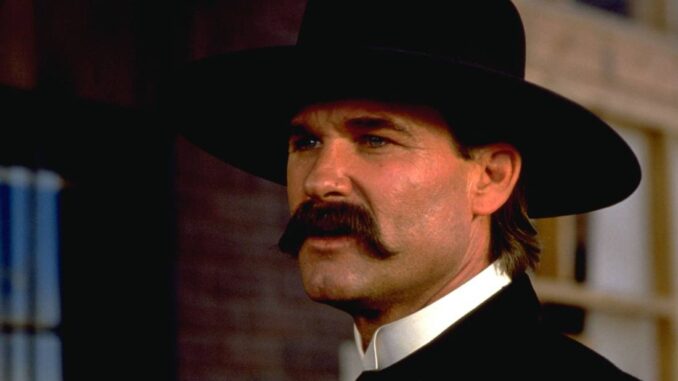
The sun bleeds gold and orange across a sprawling canvas, painting the vast, indifferent landscape with hues of challenge and promise. A lone rider crests a ridge, silhouetted against the dying light, and the very air seems to thicken with anticipation – the scent of dust, the distant lowing of cattle, the ghost of a lone harmonica’s wail. This is the enduring, mythic bedrock of the American Western, a genre woven into the fabric of our storytelling, and few figures embody its rugged charm and enduring spirit quite like Kurt Russell. Now, as news breaks of his return to the frontier in a new Yellowstone spinoff, it feels less like a casting announcement and more like a homecoming, a long-awaited crack of a Winchester echoing across the plains of pop culture.
For many, the mention of Kurt Russell and Westerns immediately conjures the indelible image of Wyatt Earp in 1993’s Tombstone. His Earp was a masterpiece of controlled intensity, a man of law and weary resolve, whose laconic pronouncements ("I'm comin', and hell's comin' with me!") became legendary. Russell imbued Earp not just with heroism, but with a palpable sense of the burden of the badge, the weight of reputation, and the relentless pursuit of a peace that always seemed just out of reach. Tombstone wasn’t merely a period piece; it was a vibrant, visceral resurrection of the genre, proving its timeless appeal. Russell’s performance anchored it, his eyes, often shadowed by the brim of a hat, holding a world of experience and a simmering, dangerous grace. He wasn't just playing a character; he was the frontier, distilled.
Yet, beyond the specific performance, Russell himself possesses an innate quality that makes him a natural fit for the Western. There's a certain gruff charisma, a quiet confidence that doesn't need to shout to be heard. From the iconic Snake Plissken to the rough-hewn charm of his roles in Quentin Tarantino's The Hateful Eight and Bone Tomahawk, Russell has consistently embodied characters who walk the line between good and bad, civilized and wild, often with a wry smirk and an unspoken code of honor. He carries the weight of a life lived, etched in the lines around his eyes, perfectly suited for a genre that deals in hardened souls and unforgiving landscapes.
The Yellowstone universe, with its sprawling narratives, generational conflicts, and the stark beauty of Montana, has single-handedly revitalized the Western for a new era. Taylor Sheridan’s neo-Western epic understands that the frontier may have moved, but the core themes remain: land, legacy, loyalty, and the struggle for survival against both external forces and internal demons. It’s a modern myth-making machine, populated by complex, often morally ambiguous characters who, much like the figures of the Old West, live by their own rules in a world that constantly threatens to swallow them whole.
The convergence of Kurt Russell and the Yellowstone saga is therefore more than just clever casting; it's a symbolic passing of the torch, or perhaps, a joining of forces across different eras of the Western. Russell brings with him the gravitas of Tombstone, the echoes of those epic gunfights and the weight of a name associated with the genre’s golden age. His presence in a Yellowstone spinoff promises to deepen the world, adding a layer of seasoned grit and a connection to the genre's mythic past, even as the narrative pushes forward into contemporary struggles. Imagine the subtle nods, the unspoken understanding between his character and the Duttons or their forebears – a dialogue across generations, conducted in the language of the land and the hard choices it demands.
His return isn't just about the nostalgia of seeing a beloved actor don a cowboy hat once more. It’s about the understanding that some stories, some archetypes, never truly fade. The gunslinger, the rancher, the man of principle in an lawless world – they simply evolve. Kurt Russell, the man who once brought Wyatt Earp roaring back to life, is perfectly positioned to bridge that gap, to illustrate how the spirit of the frontier endures, not just in the dust-choked annals of history, but in the sprawling, dangerous beauty of the modern American West. As the cameras prepare to roll, one can almost hear the familiar, reassuring rhythm of hoofbeats once more, carrying a legend back home.
